Projects
Active Studies
Adaptation and Implementation of a Specialized Reproductive Health Intervention for Commercially Sexually Exploited Youth in Child Welfare
IRB#19-000507
Youth in the child welfare system have high reproductive healthcare needs, such as high pregnancy rates, early ages of first sexual intercourse, high rates of sexually transmitted infections (STIs), and infrequent use of contraceptives. Nationally, it is estimated that 50-98% of commercially sexually exploited youth (CSEY) have a history in the child welfare system with high rates of child maltreatment and trauma, especially childhood sexual abuse. Childhood sexual abuse impacts how youth navigate interpersonal relationships, often resulting in unhealthy boundaries and contributes to sexual desensitization. As a result, CSEY have exceptionally high rates of pregnancy, STIs, and reproductive health-related problems.

Overarching Goals of the Research Project
- Test the feasibility and acceptability of the Making Proud Choices! (MPC), an evidenced-based pregnancy and STI intervention, for CSEY in the child welfare system that was adapted to My Body, My Choice (MBMC)
- Determine whether the MBMC curriculum reduced sexual risk taking behaviors and increased reproductive health knowledge and self-sufficiency at one and three month intervals.
My Body, My Choice Overview
The MBMC intervention was developed through collaborative partnership and focused on a trauma-informed and survivor-centered and led approach for delivering sexual reproductive health information to CSEY. The following were integrated into the study:
- mHealth tools in the form of technology, such as mobile devices
- Two rounds of the MBMC intervention with two disticnt groups of CSEY ages 13 to 21 years old
- Five to twelve days of curriculum participation
- 11 reproductive health modules
At one and three month intervals, participants demonstrated an improved understanding and familiarity of the different concepts relating to different methods of birth control and their effectiveness. Given the dearth of available reproductive and sexual health curricula for youth with histories of commercial sexual exploitation, we believe that disseminating knowledge on our adaptation process will continue to fill a critical knowledge gap and inform future research, policy, and practice.
mHealth Tools
- PreTest: Baseline
- Post Test: 1 Month
- Second Post Test: 3 Month
- Post Intervention: 1-30 Days
- Second Post Intervention: 30-90 Days
- Text Messages via Chorus: Daily Reminder texts and Weekly Retention Quizzes
MBMC Rounds 1 and 2 Results
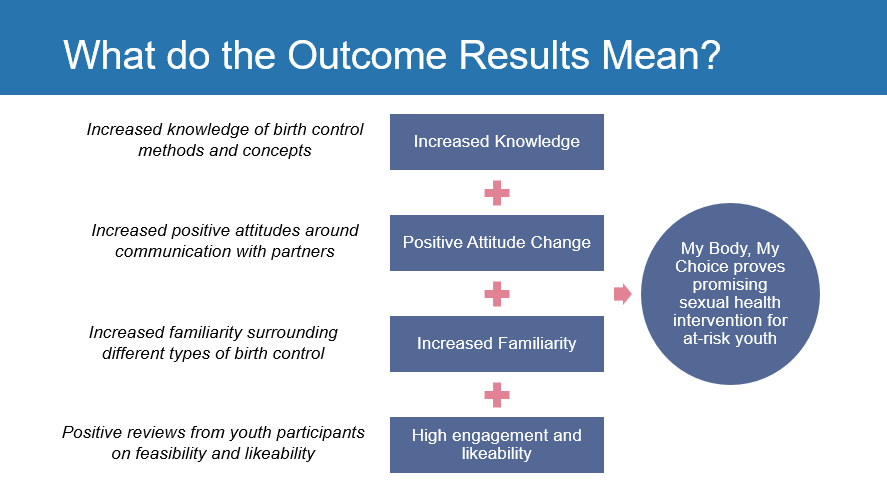
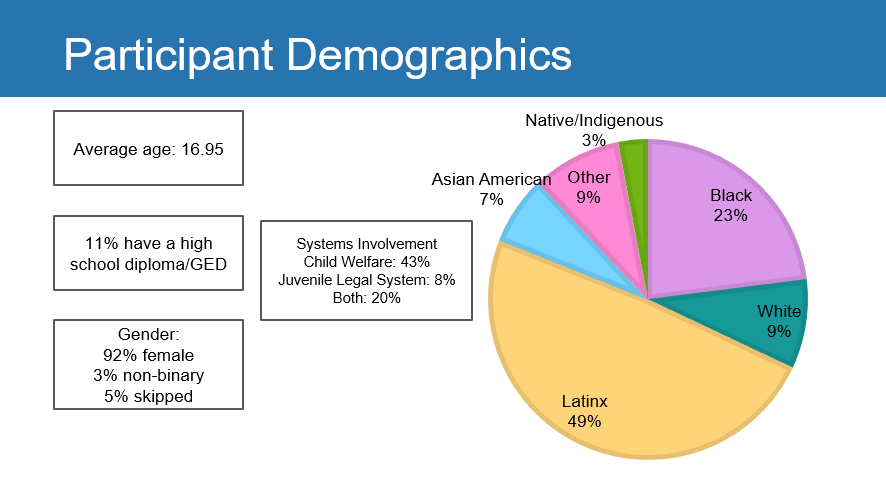
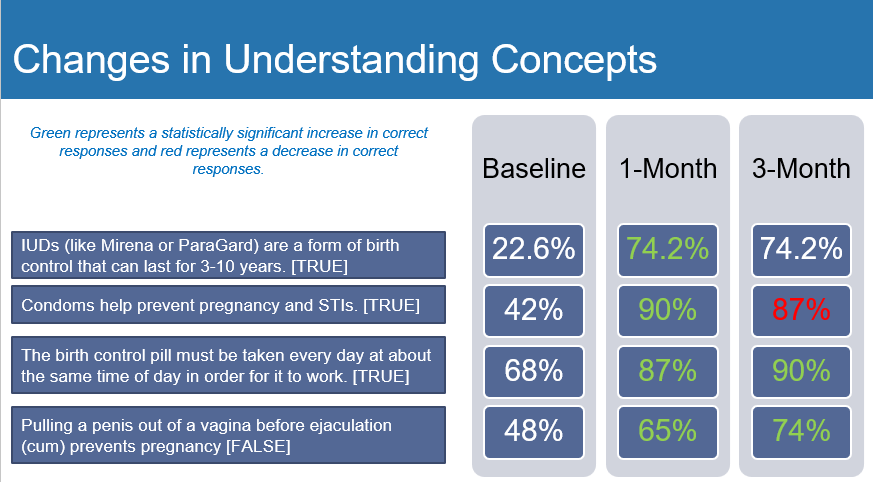
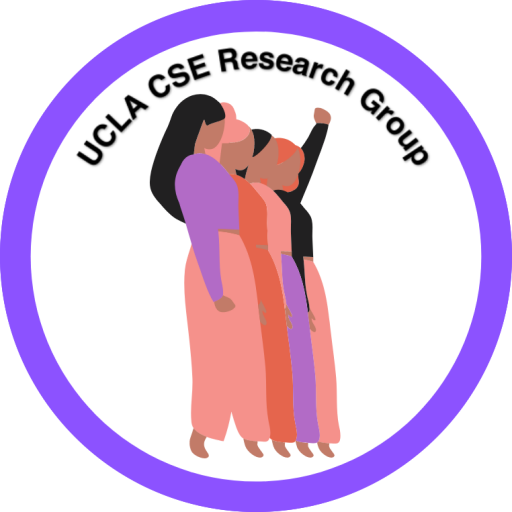



Assessment Of Appropriate Health Service Package To Commercially Sexually Exploited Youth
IRB#14-000419
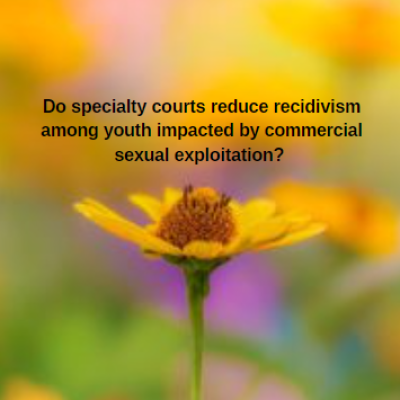
There are burgeoning efforts across the country to develop and implement specialized court services for youth victims of commercial sexual exploitation and human trafficking. The lack of a uniformed approach to date with this population reflects a poor understanding of the unique needs of these youth. The Succeeding Through Achievement and Resilience (STAR) court in Los Angeles County is one of about 20 specialized courts nationally for youth who are victims of sexual trafficking. While the STAR court appears to be a much more effective way of intervening with youth than traditional juvenile or criminal courts, unfortunately, the reality is that many youth may return to their high-risk lifestyles in spite of the best efforts of the court and service providers. These high-risk lifestyles of sexual exploitation are associated with several negative behavioral and health outcomes. Our study will help prove efficacy for the STAR Court and understand long-term trajectories of sexually exploited youth with and without specialized interventions involved in the delinquency system.
An alternative approach is needed to:
- Increase engagement in STAR-court programs and services (including regular school attendance and stable housing)
- Offer preventive medical services that will provide additional protection to girls who resume sex work.
In Phase I, the STAR program was reworked through the gathered information from focus groups and individual interviews composed of stakeholders and both confirmed and suspected victims of sexual exploitation from 2015 to 2018. Additionally, the STAR Court program was informed by data gathered through the control group. In Phase II, the research team will gather information from case files and the electronic data entry systems to form a comparison group of about 400 youth (sexually exploited and/or non-sexually exploited) who are involved in the delinquency and/or dependency systems but not accessing services from STAR Court.
- Focus Groups
- 2015-2016: 5 focus groups with 18 youth on healthcare access
- 2017-2018: 4 focus groups with 14 youth on mHealth
- 2017-2018: 2 focus groups with 15 stakeholders on mHealth
- Interviews:
- 2017: 21 youth interviewed on healthcare access and barriers
- Case File Review: STAR Court Treatment Group (N=364)
- Case File Review: Control Groups (N=455)

